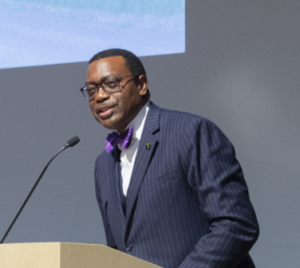…As Bank’s Total Capital Hits $318Bn
Shareholders of African Development Bank (AfDB) have approved a $117 billion callable capital increase, raising the bank’s total capital to $318 billion.
The callable capital increase for the development finance institution, which was approved at its just concluded 2024 Annual Meetings held in Nairobi, Kenya, is intended to strengthen the bank’s capacity for interventions across Africa, thereby allowing it to better align with the evolving global finance architecture and enhance its support for the continent.
Commenting on the shareholders’ latest approvals, the President of the AfDB Group, Dr. Akinwumi Adesina, enthused: “This is a major demonstration of the faith, of the confidence that our shareholders have in us. Their confidence in our ability to use resources well, their confidence in our ability to mobilize more capital with what we have, and it will give us more liquidity as a bank to be able to do more.”
The theme of this year’s AGMs which were held from 27 – 31 May, was “Africa’s Transformation, the African Development Bank Group, and the Reform of the Global Financial Architecture.”
Adesina emphasized the necessity for a fairer and more equitable global financial architecture and climate finance system, ensuring it benefits the countries that need it most.
During the meetings, Kenya pledged $20 million to the African Development Fund, the concessional window of the Bank Group serving 37 low-income countries, thereby making the country the largest regional member-country contributor to the fund.
This year’s meetings attracted over 10,000 participants from Africa and beyond and marked the launch of the Bank’s 60th anniversary celebrations. Delegates included several African heads of state and government, Bank governors, executive directors, senior government leaders, development partners, the academia and civil society representatives.
Apart from statutory meetings, the event featured several side events and knowledge-sharing dialogue sessions, led by African and global experts. The Bank’s flagship African Economic Outlook report was also unveiled, revealing that African economies are demonstrating resilience despite challenging economic conditions. The report noted an average GDP growth of 3.7 percent for 2024, with a projected increase to 4.3 percent in 2025.
Adesina underscored the importance of Africa being central to the global financial architecture, stressing that “the Bank must continue to lead that charge. We need to be at the table. As Africans, we should believe in ourselves and write a new narrative for Africa. The growth of Africa will support the growth of the world with Africa at its heart.”
During the meetings, there was consensus among the shareholders that to achieve Africa’s structural transformation, there is need to improve the macroeconomic environment, domestic resource mobilization, tax collection, digitalization, formalizing the informal sector, tackling illicit capital flows and corruption, and improving the capacity of countries to better negotiate taxes and royalties from their vast natural resources.
They also strongly endorsed the creation of an African credit rating agency, designed to better understand and fairly assess the continent’s conditions.
In his remarks on the rating agency’s issue, the AfDB President pointed out that “the African rating agency is not going to be a replacement for the global ratings agencies”, adding that “what the heads of state are saying is they want a counterpart institution that understands the conditions in the continent better.”
On the need for reform in the global rating system, the development finance banker said: “The global rating system has to change. We need to create a fair response that rates African countries properly and with equity. Africa is not asking for a pass, but there needs to be a fair process that rates African countries properly. It’s about fairness, it’s about equity, it’s about making sure that both sovereign and non-sovereign are rated properly.”
In the final communiqué, the Bank’s Governors, representing shareholders, highlighted several positive developments, including the Bank’s efforts to enhance food and nutrition security in Africa through its Feed Africa Strategy.
Similarly, they also expressed confidence in Africa’s ability to build a green energy infrastructure while pursuing a low-carbon future.
The communiqué underscored the need for increased private sector investments to accelerate Africa’s transformation. It called on the Bank’s management to further strengthen support for regional member countries to help them achieve sustainable development goals.
The governors also welcomed efforts to secure over $1.5 billion in financing through the Affirmative Finance Action for Women in Africa (AFAWA) and to mainstream gender across all operations.






